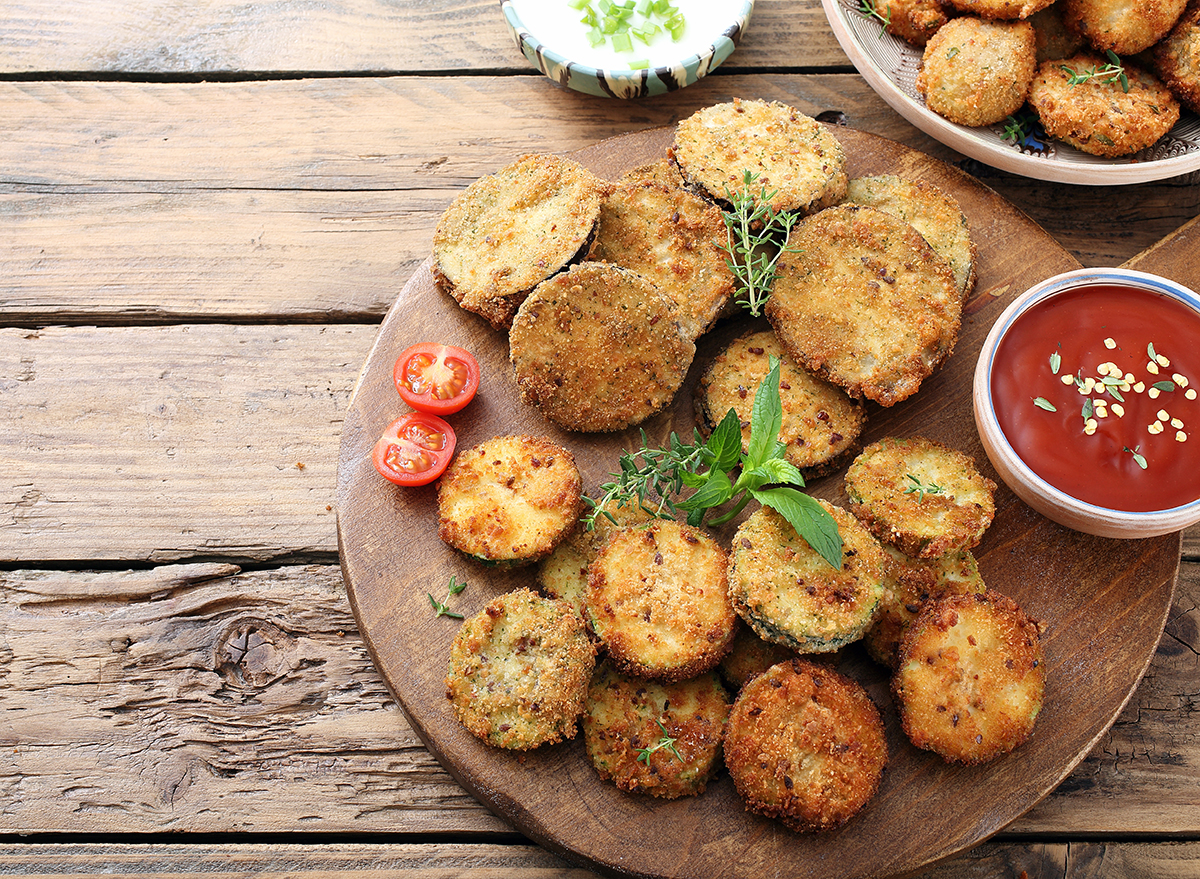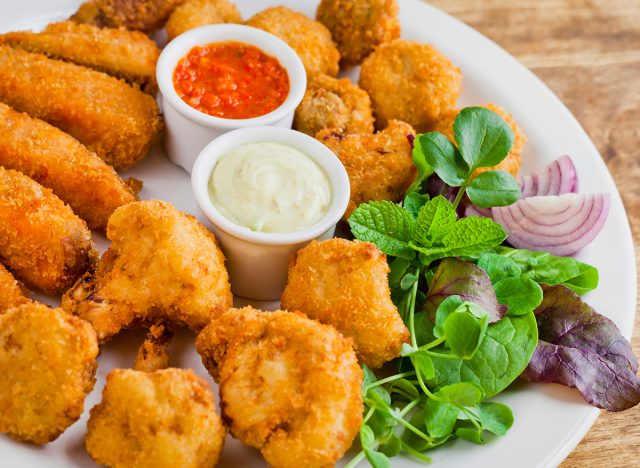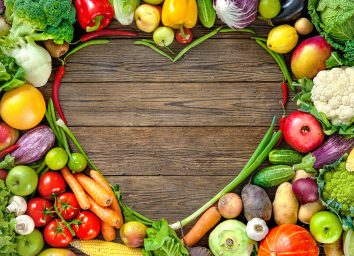If You’re Eating Your Vegetables This Way, You’re Better Off Eating Fast-Food

Vegetables provide an abundance of health benefits. They support heart, bone, skin, and eye health, you name it. If you’re not a huge fan of some vegetables, that shouldn’t be a problem because there’s a large variety to select from and so many ways to prepare them to help you get your daily vegetable fix in.
However, as good as vegetables are for your health, you still might be sabotaging your body. If you’re eating them in certain ways, such as how you cook them, you might even be better off eating fast food. According to Molly Hembree, MS, RD, LD, a registered dietitian and member of our Medical Expert Board, one of the worst ways to eat vegetables is when they’re fried.
“There are plenty of examples of ways you shouldn’t eat vegetables, including fried and smothered foods,” says Hembree.
Hembree further states that while the vegetable nutrients remain the same, it’s what you’re adding to it that makes it worse for you.
“It’s not necessarily that nutrient composition changes when you cook vegetables a certain way,” Hembree explains. “It’s just that people might think they are ‘getting in their vegetables’ when in fact it is a very small serving. And, at the expense of a lot of added oils, sodium, sugars, or refined grains, etc.”
Take fried broccoli, for instance. One cup (85 grams) of fried or battered broccoli contains 279 milligrams of sodium. According to the 2020-2025 Dietary Guidelines for Americans, it is recommended that your daily sodium intake be 2,300 milligrams. That one cup of fried broccoli will then provide about 12% of your daily sodium intake!
Research shows that fried foods—including fried vegetables—are bad for your health

Multiple studies have found that eating fried food has been associated with many health risks. For example, frequent consumption of fried foods has been linked to a higher risk of both all-cause mortality and cardiovascular mortality in women in the United States, according to research published in the British Medical Journal.
In addition, research published in the journal, Nutrients, research suggested that consuming fried foods for or more times a week is associated with a higher risk of developing type 2 diabetes, heart failure, obesity, and hypertension.
To further confirm the negative effects of fried food, a 2021 study published in the journal, Heart, suggested that fried food intake is linked to a heightened risk of major heart disease and stroke.
Takeaway
Although Hembree recommends staying away from the fryer, she believes you don’t have to eat vegetables plain. In moderation, you can add some toppings and make them taste good, all while still being healthy.
“Broccoli with a little bit (tablespoon or two) of cheese, for example, is totally fine,” Hembree suggests. “But small pieces of vegetables in tons of fried breading is very different.”









